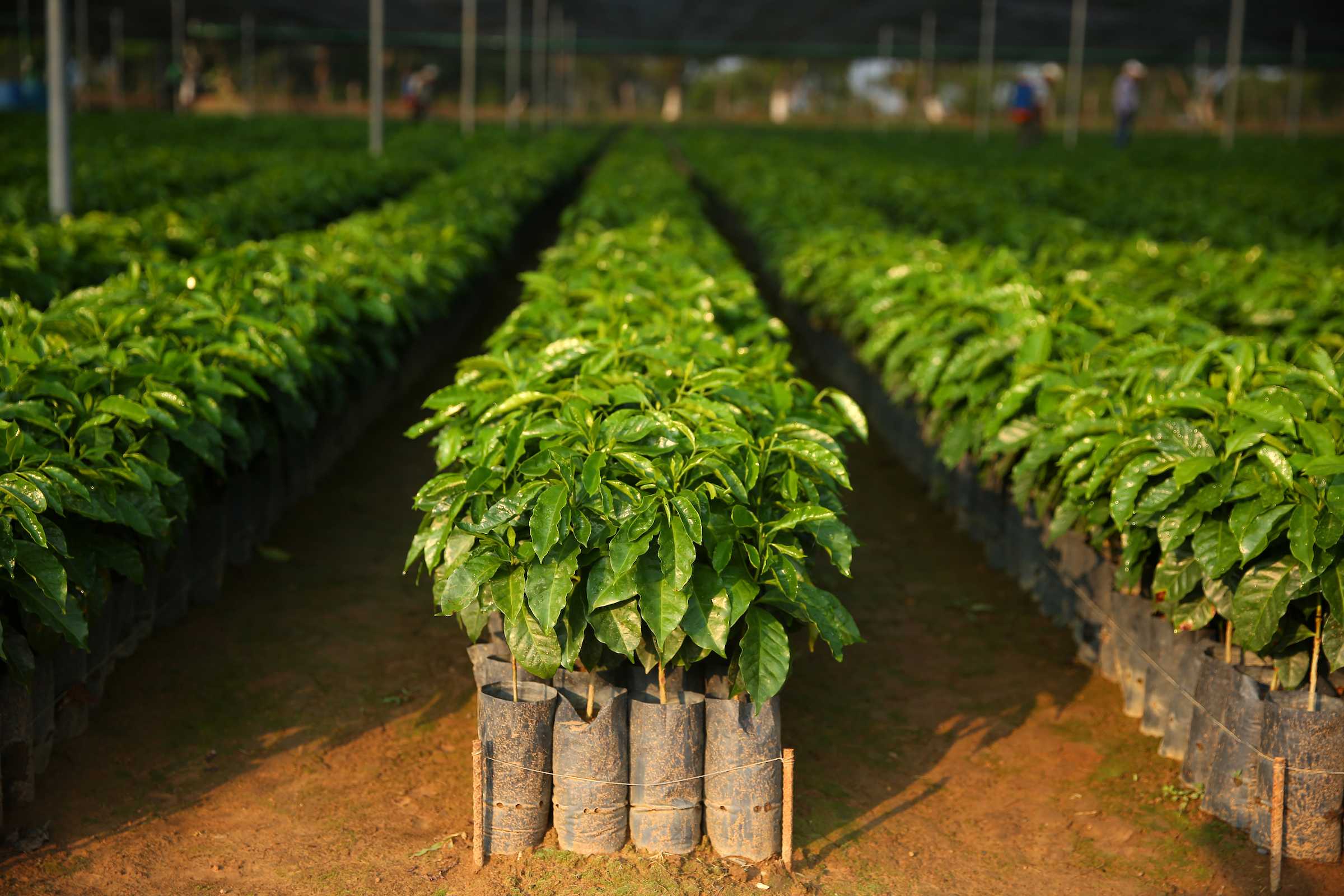SEATTLE, U.S. – Starbucks Coffee Company has announced that it will make sure 100 million healthy coffee trees get into the hands of coffee farmers that need them by, 2025.
This effort is part of the company’s ongoing commitment to provide comprehensive support to farmers around the world, which includes open-source agronomy research, farmer financing and access to information.
This expanded commitment builds on Starbucks One Tree for Every Bag initiative which launched in September 2015, ensuring that a coffee tree is planted for every bag of coffee purchased in a participating U.S. stores.
The seedlings will replace trees that are declining in productivity due to age and disease, such as coffee leaf rust which is perpetuated because of a warmer climate. More than 25 million trees have been donated thus far with the initial distribution of 10 Million having started in the summer of 2016.
“We have heard directly from farmers that healthy trees are what they need now, more than ever, so this long-term approach coupled with the right resources directly correlates to the stability of their family as well as the future of coffee,” said Cliff Burrows, group president, Global Coffee, Starbucks.
Having already built a successful tree distribution network and as one of the largest purchasers of arabica coffee, Starbucks can now integrate the purchase of healthy, rust-resistant coffee trees into its green coffee buying program.
By working with long-term suppliers, the company will seamlessly ensure that a total of 10 Million coffee tree seedlings per year are available to farmers in need.
Going forward, the company will continue its relationship with supplier nurseries set up in Mexico, Guatemala, and El Salvador as well as look to develop new supplier nurseries in additional coffee regions that would benefit from re-planting.
By integrating this into their purchasing behavior and evolving their current initiative, Starbucks expects at least 100 Million trees to get to farmers by 2025. Not only will this ensure that farmers get trees at a critical time but it will help stabilize the income of thousands of farming families.
This effort will have an amplified effect when added to the work of The Sustainable Coffee Challenge that recently announced an industry wide effort to replant 1 billion coffee trees, to ensure positive outcomes for both productivity and the environment.
The Sustainable Coffee Challenge is a joint initiative of over 60 partners including corporations, governments, NGOs and research organizations working together to make coffee the first sustainable agricultural product.
A key tenet of the Challenge is to encourage partners to tackle some of the most pressing challenges facing the coffee sector – both individually and via collective action.
This replanting effort will be one of the organizations Collective Action Networks and, in addition to Starbucks, is supported by non-profits, government agencies and coffee roasters.
“Providing healthy trees to farmers in coffee-growing regions makes existing lands more productive and keeps us from expanding into forests,” said Dr. M. Sanjayan, executive vice president and senior scientist at Conservation International.
“We’re proud to stand alongside Starbucks in this long-term endeavor to ensure that both livelihoods and nature around the world are vibrant and healthy.”
To date, Starbucks investments in coffee farming communities include:
- Ethical Sourcing Standard: 99% of coffee sourced by Starbucks has been verified as ethically sourced through its C.A.F.E. Practices standards developed with Conservation International more than a decade ago.
- Healthy Coffee Trees: The donation of enough funds to plant 25 million rust-resistant coffee trees with the first phase of distribution including 10 million healthy coffee trees sent to farmers in need across El Salvador, Guatemala and Mexico. More than 6,200 farming families received new coffee trees helping to rehabilitate more than 2,500 hectares of farmland and nearly 800 temporary jobs were created to support the initial distribution.
- Farmer Financing: Committing $50M in affordable credit for coffee farmers and cooperatives by 2020 so that farmers can reinvest in their farms.
- Agronomy Support: Investing $20 million in open-source agronomy through a network of eight Farmer Support Centers to train 200,000 coffee farmers by 2020, leveraging the research at Hacienda Alsacia, Starbucks global agronomy center in Costa Rica.














